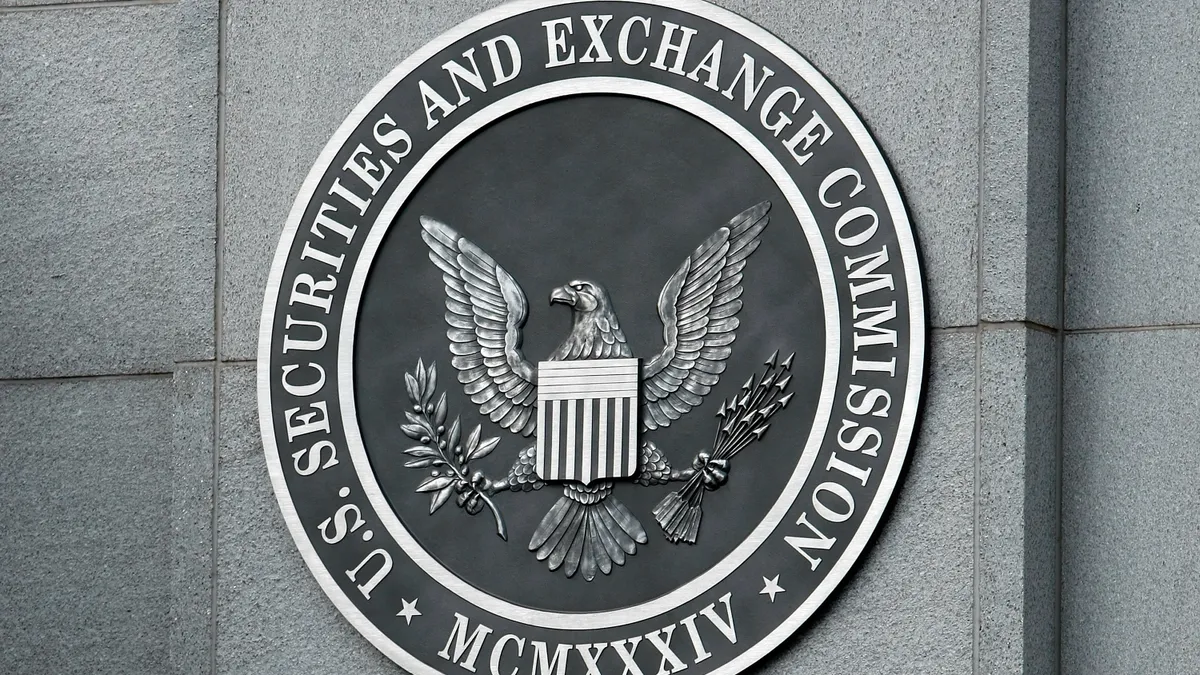Dive Brief:
- A bipartisan group of senators has introduced legislation that would strengthen protections for whistleblowers under a Securities and Exchange Commission program that in fiscal year 2022 received a record 12,300 allegations of securities law violations.
- Five senators — including Charles Grassley, R-Iowa, and Elizabeth Warren, D-Mass. — are sponsoring a bill that would, in part, shield whistleblowers from retaliation if they report violations to a direct superior. Currently, they are safeguarded if they bring allegations to the SEC and other government offices.
- “By improving protections for whistleblowers at the SEC, our legislation would support a culture of transparency and ultimately strengthen the agency’s mission to protect investors and markets,” Sen. Susan Collins, R-Maine, said in a statement.
Dive Insight:
The SEC during fiscal year 2022 granted $229 million in 103 whistleblower awards, the second highest total for both categories. Since creation of the Office for the Whistleblower in 2011, the agency has paid more than $1.3 billion in 328 awards following tips of securities law violations that led to successful enforcement actions.
Whistleblower tips and subsequent enforcement have resulted in $6.3 billion in sanctions, including $4 billion in disgorgement of ill-gotten gains and interest, the SEC said. More than $1.5 billion of the total has been, or is scheduled to be, returned to investors.
The proposed legislation would clarify that whistleblowers cannot waive their rights as part of a pre-dispute arbitration agreement. It would also ensure that awards are provided within one year after either conclusion of litigation or one year after a whistleblower has filed an award claim — whichever is the later of the two.
The SEC grants whistleblowers awards ranging from 10% to 30% of the sanctions imposed by the government.
“Whistleblowers who expose wrongdoing and fraud should not be held back out of fear of retribution, and I’m proud to support this legislation to ensure they are protected at the SEC,” Sen. Catherine Cortez Masto, D-Nev., said in a statement.
The most common whistleblower complaint categories during fiscal year 2022 included manipulation at 21%; offering fraud, 17%; initial coin offerings and cryptocurrencies, 14%; and corporate disclosures and financials, 13%, the SEC said. The agency during the period took actions in two instances involving efforts to impede a whistleblower from reporting securities-related misconduct.
The SEC in August approved amendments to agency rules aimed at expanding incentives for whistleblowers. It gained authority to award whistleblowers for actions brought by other agencies such as the Justice Department. It also eliminated agency authority to reduce a potential award when it is considering an increase in an award.
The changes revised rules made under the Trump administration.
The SEC in 2021 received on average 49 whistleblower tips every workday, according to a study by Alexander Platt, an associate professor at the University of Kansas Law School. “Success depends on sifting through this avalanche of tips to determine which ones to investigate,” the study found.
Both the SEC and the Commodity Futures Trading Commission, “have effectively privatized the tip-sifting” by relying on private attorneys who have extracted hundreds of millions in fees and expenses while almost completely free of public accountability, Platt said in “The Whistleblower Industrial Complex.”















